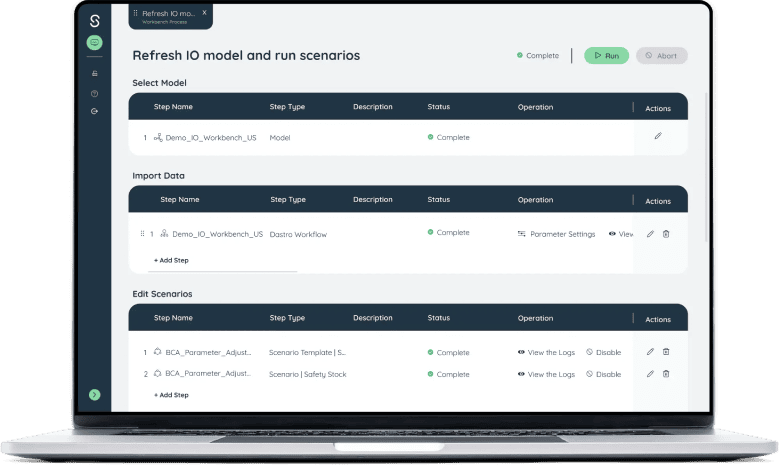In recent years, the Right-wing populism is experiencing a global rise, marked by increasing support for populist parties and leaders across various regions. In Europe, right-wing populist parties have gained significant vote shares in countries like Italy, Spain, Hungary, and Poland, often capitalizing on economic discontent and fears of cultural change (Council on Foreign Relations) (Pew Research Center).
In the United States, figures like Donald Trump have exemplified this trend, blending populist rhetoric with ethno nationalist and authoritarian elements (Marketplace). Similar movements are also gaining ground in countries like India, Brazil, and the Philippines (Marketplace) (The Wire).
This rise reflects widespread dissatisfaction with traditional political parties and a growing desire for leaders who promise to challenge the status quo and address the perceived failures of the political establishment.
This post focuses on the impact of right-wing populism on the supply chain and how Sophus X can help you with pre-impact supply chain optimization. Give it a read and discover how better preparation through supply chain design and optimization can benefit your business.
What Are the Right-wing Populism Implications for the Supply Chain?
The right-wing populism implications for the supply chain are trade barriers and tariffs, reshoring and localization, immigration limitations, regulatory changes, geopolitical tensions, and supply chain resilience. Based on this, right-wing populism can have a significant negative impact on global supply chains.
Trade Barriers and Tariffs
To protect domestic industries against foreign companies, right-wing populist governments impose trade barriers and tariffs (taxes on imports). This, on the one hand, ensures that people belonging to a particular country support its local businesses instead of buying imported products. However, on the other hand, it negatively affects international trade relationships.
Besides being the result of right-wing populism, tariffs are also applied when a country wants to pressure another country to agree to specific terms. Read this real-world example of tariff imposition.
As confirmed by the Tax Foundation regarding the US-China trade war, the Biden administration has kept most of the Trump administration tariffs in place. Moreover, in May 2024, the Biden administration announced tariff hikes on an additional $18 billion of Chinese goods, including electric vehicles and semiconductors, for an additional tax increase of $3.6 billion.
Also, based on governmental and academic studies, the Trump-Biden tariffs have increased costs and reduced employment and output, resulting in a net negative impact on the US economy.
Reshoring and Localization
Reshoring and localization refers to the reversal of offshoring or bringing back manufacturing and production jobs to your own country. From one side, it seems to be a great initiative to improve the local economies, reduce dependency on foreign suppliers, and enhance product quality.
But if you look at its other side, you might find it responsible for the global supply chain disruption. Moreover, if you are a resident of a developed country, you might need to pay higher labor expenses that eventually result in increased production costs.
Immigration Restrictions
Immigration restrictions imposed as a part of right-wing populism open the doors of work opportunities for the local people. However, it also badly affects the sectors that heavily rely on migrant workers, like construction, agriculture, and some manufacturing industries. Labor shortages, inefficient supply chains, and increased costs are some prominent effects of immigration restrictions.
Based on The Migration Observatory, following 1 January 2021, free movement ended and EU citizens who want to migrate to the UK are subject to the same immigration rules facing citizens from non-EU countries. Anyone moving to the UK to work or live now needs a visa.
Furthermore, it has been confirmed by the European Central Bank that while on average the rise in non-EU arrivals has more than offset the fall in EU migration, the new migration policy has decreased labour supply in some sectors.
Regulatory Changes
The right-wing populist governments might implement regulatory changes to encourage local businesses and reduce foreign competition. Being beneficial from a broader view, these changes can make the international supply chains complicated, requiring companies to adapt to new compliance requirements and potentially face higher operational costs.
Geopolitical Tensions
Geopolitical tensions are another implication of right-wing populism. In simple terms, geopolitical tensions refer to conflicts between two countries due to differing political ideologies or due to strategic interests in specific geographic regions.
These tensions can further result in threatened penalties, an official ban on trade, or other similar economic retaliation that eventually disrupt supply chains.
Supply Chain Resilience
Supply chain resilience and diversification come under the pure benefits of right-wing populism. Leveraging the said benefits, you won’t need to rely on a particular country to keep your supply chain moving smoothly. Moreover, your business won’t suffer due to any political instability or protectionist measures.
Is Your Supply Chain Design and Planning Ready for the Impact?
According to UNSW Sydney, supply chain leaders in multinational companies must manage risks associated with political leadership changes in countries where operations could be disturbed.
So, is your supply chain design and planning efficient enough to deal with the potential impacts of political events like right-wing populism? Can’t you say yes confidently? Read the next section.
Let Sophus X Help You Optimize Your Supply Chain
Sophus X can significantly help businesses prepare for changes and uncertainties introduced by factors such as right-wing populism. Here’s how we can help:
Scenario Planning and Risk Management. Sophus X enables businesses to create and analyze multiple scenarios, helping them anticipate and plan for potential disruptions due to trade barriers, tariffs, or geopolitical tensions. This proactive approach allows companies to develop contingency plans and respond quickly to changes. For instance, a global enterprise can simulate its sourcing network and assess the impact of increased taxes and duties on components and raw materials originating from China. Consequently, the company can rebalance its supply chain to optimize the network, thereby reducing costs and enhancing overall efficiency.
Cost Optimization. Sophus X can identify cost-saving opportunities by optimizing routes, consolidating shipments, and balancing inventory levels. It can also help businesses evaluate the financial impact of reshoring and localization strategies, ensuring cost-effective decisions that maintain supply chain efficiency.
Inventory Management. Sophus X offers advanced analytics for better inventory management. By predicting demand fluctuations and optimizing stock levels, businesses can avoid overstocking or stockouts, maintaining smooth operations even amid regulatory changes and market shifts.
Supplier Diversification. Sophus X can assist in identifying and evaluating multiple suppliers, reducing dependency on single sources that may be affected by immigration limitations or regulatory changes. This diversification enhances supply chain resilience (The Wire).
Here is what more we offer:
- Supply Chain Network Design and Optimization
- Integrated Business Planning
- Inventory Planning and Management
- Operation Optimization
- GHG Emission Modeling and Optimization
Bonus Tip: Meet the ESOS requirements to increase energy efficiency and lower your bills.
Final Thoughts
The rise of right-wing populism presents a complex challenge for global supply chains, introducing factors such as trade barriers, reshoring, immigration restrictions, regulatory changes, geopolitical tensions, and a focus on supply chain resilience. These dynamics necessitate a strategic approach to supply chain management to navigate the associated risks and opportunities effectively.
Sophus X can be a valuable ally in this context, offering advanced tools for scenario planning, cost optimization, inventory management, supplier diversification, and overall supply chain resilience. By leveraging these capabilities, businesses can better prepare for and adapt to the uncertainties brought about by right-wing populism, ensuring continuity and competitiveness in an increasingly volatile global environment.
For more information on how Sophus X can help optimize your supply chain and prepare for political and economic changes, visit Sophus X.









